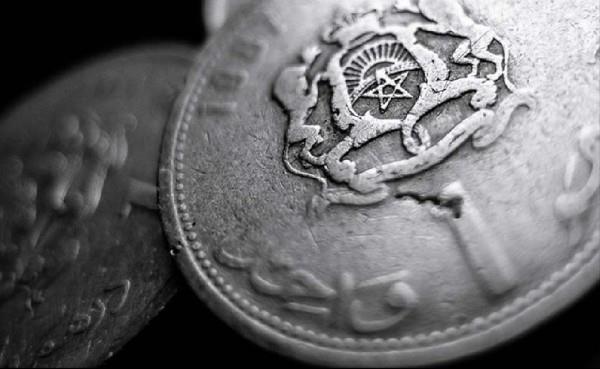
Botched Launch of the Dirham Liberalization Reform: Who's to Blame?
The dirham fever continues to create strife between and . After Jouahri pointed the finger at the Moroccan Executive as the only party responsible for the postponement of the dirham liberalization reform, Boussaid came out to return the accusations.
Would an excess of transparency undermine reforms? According to Boussaid, the answer is yes.During his intervention at the Finance Committee of the House of Representatives held December 27, the Minister criticized Jouahri's transparent approach since he began implementing the first pieces of the exchange rate regime reform until its finalization. 'Panic has accompanied the announcement of the date of implementation of the reform.'
In small words, the shambles that preceded the entry into force of the reform early July, including the severe rush on currency and the devaluation speculations against the Dirham, would be due to the 'excessive' transparency of .'People were afraid that what happened in Egypt would also happen in Morocco,' said Boussaid.
In its December 27 issue, Moroccan newspaper Akhbar Al Yaoum reported that PJD MP Abdellatif Berroho believes that the central bank has committed a 'strategic mistake' by announcing the launch date of the reform eight months too early. For Berroho, this is what led to a kind of anarchy where banks tried to get their hands on currency reserves by using 'fraudulent practices.'How far should go bank secrecy? But does Boussaid really have the right to blame Jouahri on the fiasco of the ? Everything suggests otherwise.
First of all, Jouahri never really revealed the date of the launch of the reform. It was the local media that leaked the information disclosed by an official anonymous source.In fact, it wasn't until December 18, during the quarterly meeting of Bank Al Maghrib's council that the governor that July 1, the date advanced by the media, was indeed the one planned for the implementation of the reform.
'It was supposed to take effect on July 1, following a communication campaign with representatives of banks, employers, Moroccans living abroad, exchange offices and public bodies like OCP or MASEN,' Jouahri explained on December 18.Second of all, Boussaid and the government had all the latitude and the time to tell the governor of the Central Bank not to announce a specific date. However, they did not, even though they were collaborating closely with Bank Al Maghrib throughout its long communication campaign.
The truth is that everyone was surprised by the speculations against the , despite the clarity of the messages delivered by Jouahri.For months, Jouahri didn't miss any opportunity to inform and reassure about the reform. In fact, the governor of Bank Al-Maghrib strove to make the process transparent in a way that enabled all economic stakeholders and public opinion to be informed of all its details.
From educational videos to a multitude of press conferences in which he explained the gradual transition to a more flexible exchange rate regime, Jouahri stressed more than once that the preparation of this reform was done in a 'voluntary' way, unlike other countries like Egypt, which was in a situation of 'currency crisis.'However, the reform took a hard blow when between May and June, trading rooms entered into a frenzy as commercial bank's 'speculations' against the dirham went wild. Worries about a devaluation prospect triggered a rush on currency, draining MAD 45 billions from the central bank's foreign reserves.
At the time, the usually collected Jouahri was furious. 'I am unhappy, because the credibility of the central bank is being questioned,' he said venting his frustration. The central bank boss, who openly accused the banks of speculating against the dirham at the time, reminded them of the rules of the Foreign Exchange Office regulations: 'Only transactions backed by a foreign trade operation are accepted. Everything else is in principle forbidden even if some are tolerated.'The misunderstood man Following this unprecedented rush on currency, the head of the government decided to delay the reform of the exchange regime arguing that the Executive was barely established and he wanted to examine this reform in depth.
Usually very discreet on the subject, Jouahri opened up about his 'misunderstanding' and 'disappointment' at the government's reluctance to reform the exchange rate regime.justified the postponement of the reform by citing a 'need for additional studies,' to better understand 'its impact on the economy and, in particular, on the purchasing power of citizens.'
However, according to Jouahri, 'so far we have not been asked to conduct a particular study on the exchange rate regime.' For the BAM's governor, the postponement of the reform is primarily political and has been decided by the government.During a press conference held September 25, Jouahri denied any appropriation of this reform by the Central Bank: 'From the outset, a joint committee was set up to steer the process.' Jouahri recalled that the political management of this issue is part of the prerogatives of the executive, while the Bank only managed the technical components.

Legal Disclaimer:
MENAFN provides the
information “as is” without warranty of any kind. We do not accept
any responsibility or liability for the accuracy, content, images,
videos, licenses, completeness, legality, or reliability of the information
contained in this article. If you have any complaints or copyright
issues related to this article, kindly contact the provider above.

















Comments
No comment